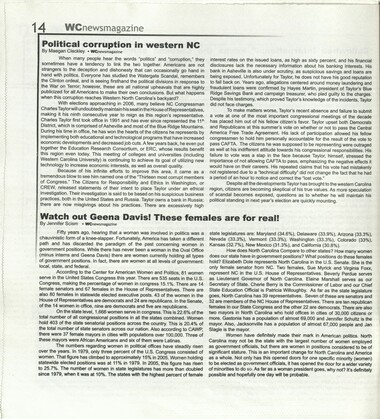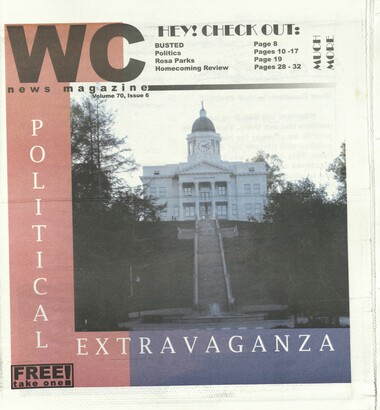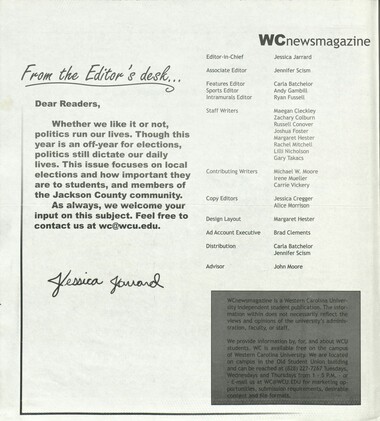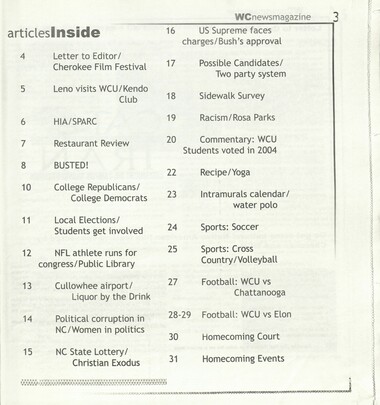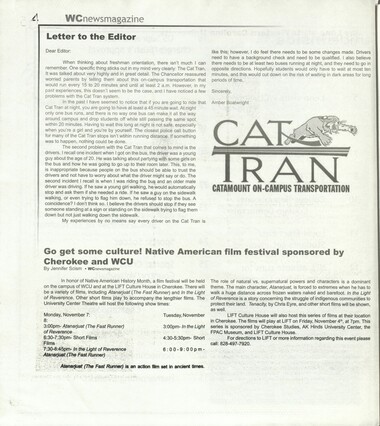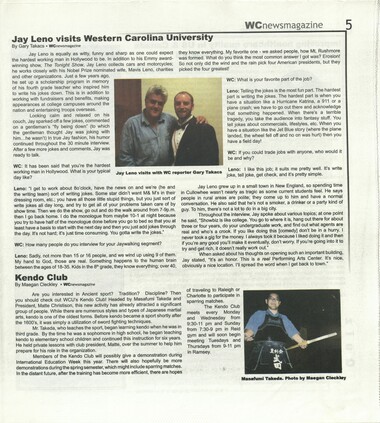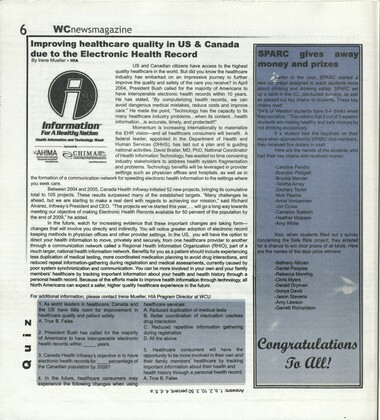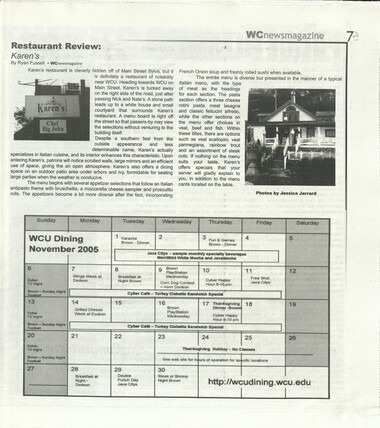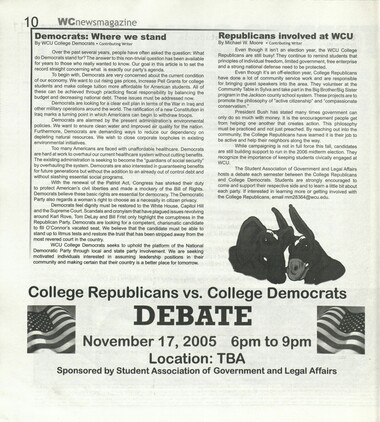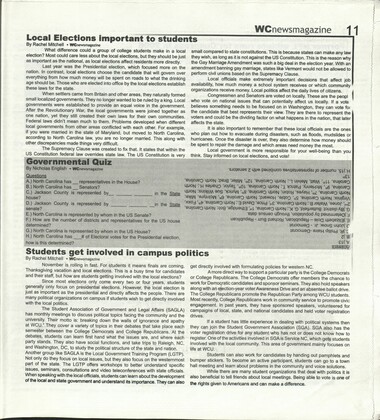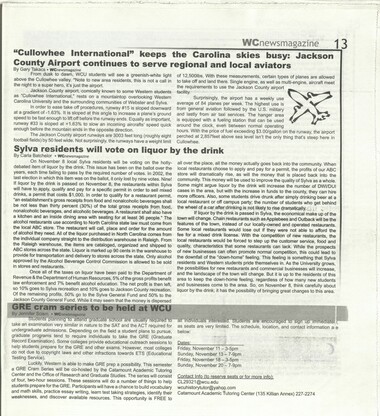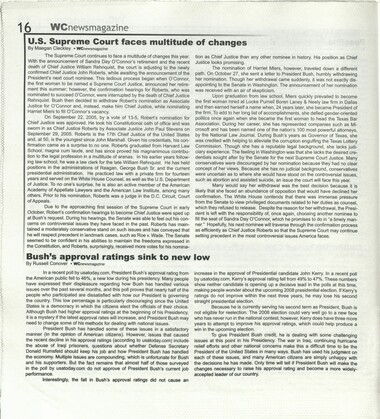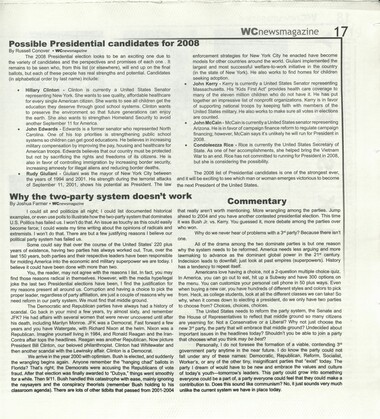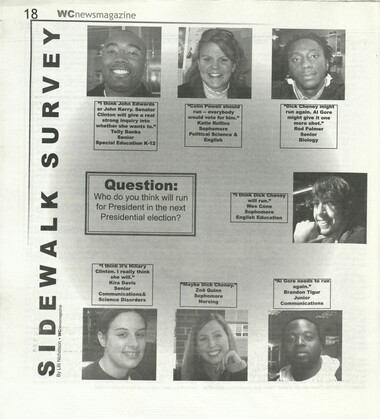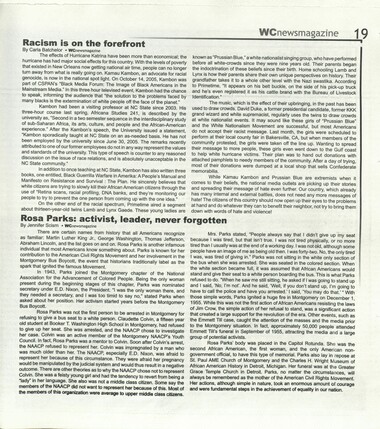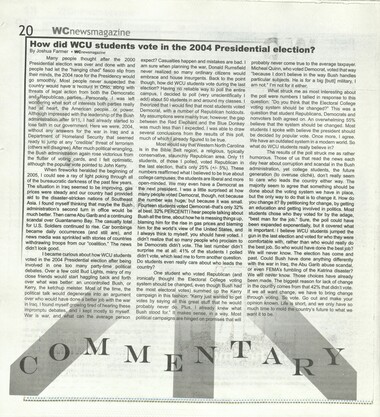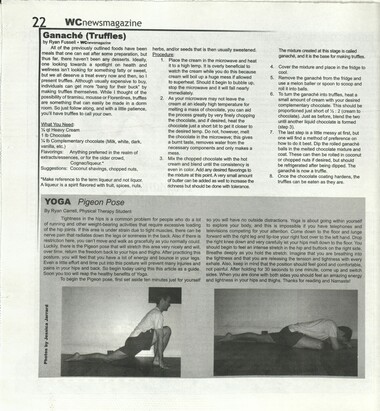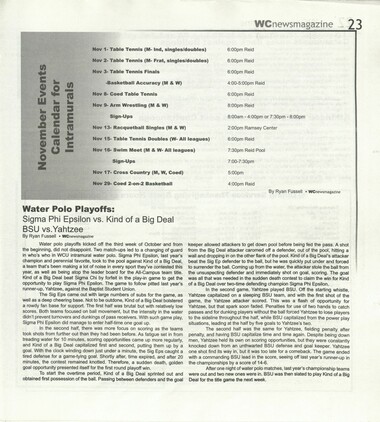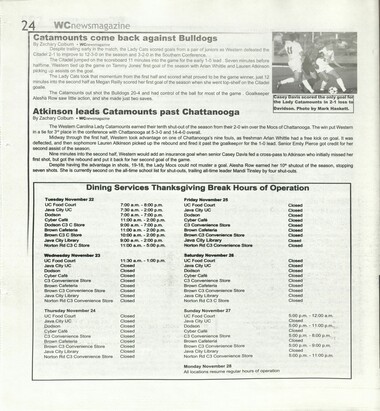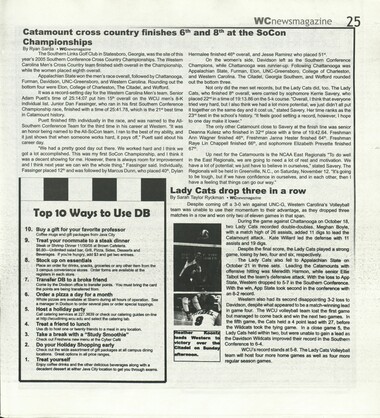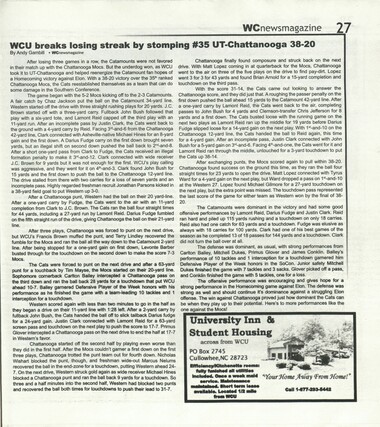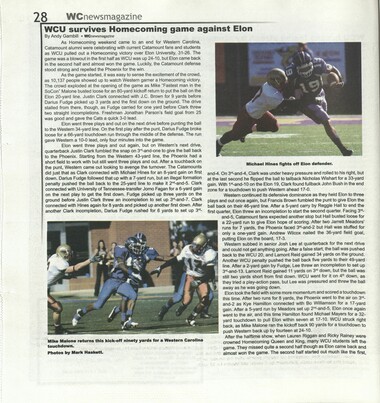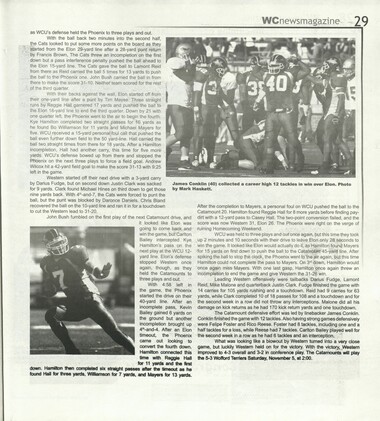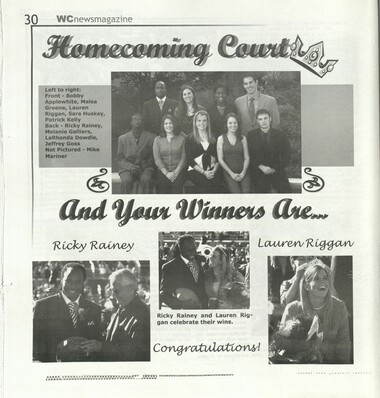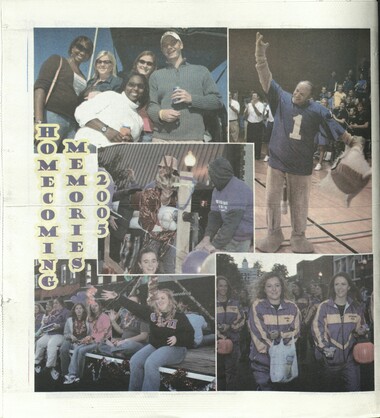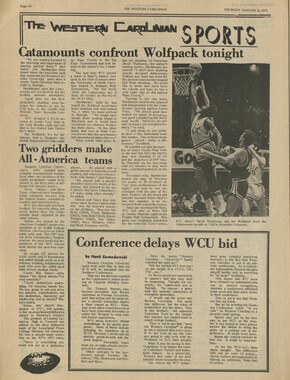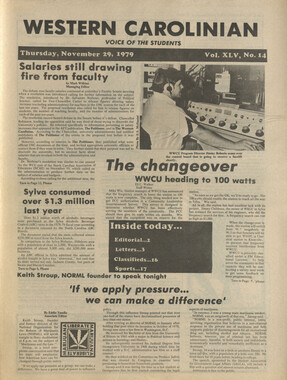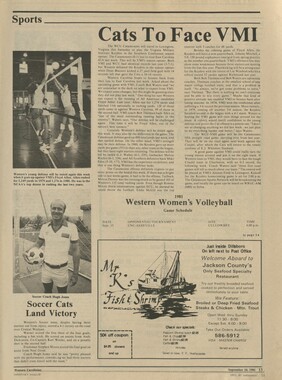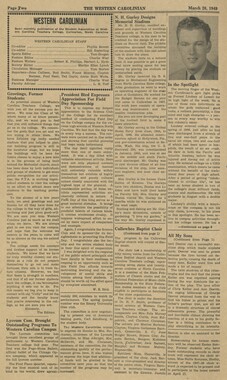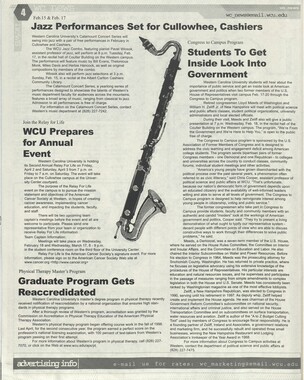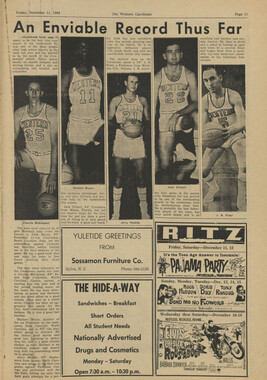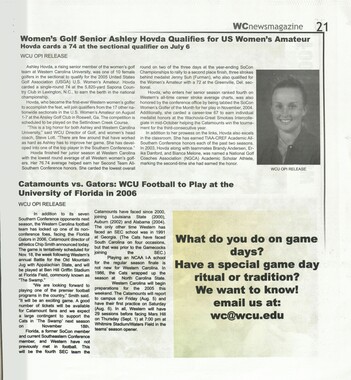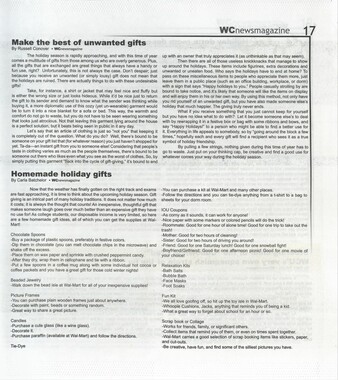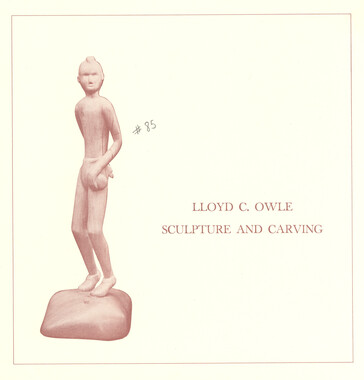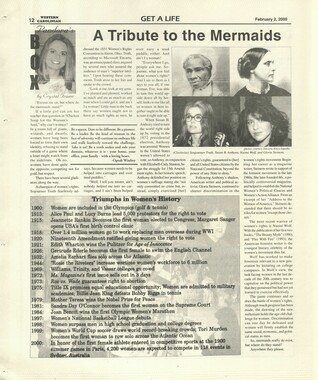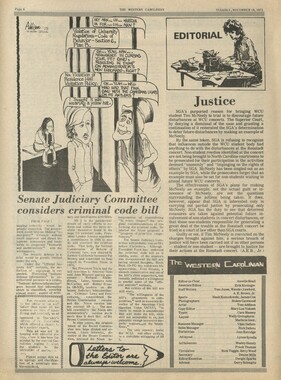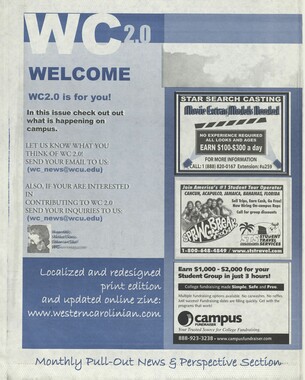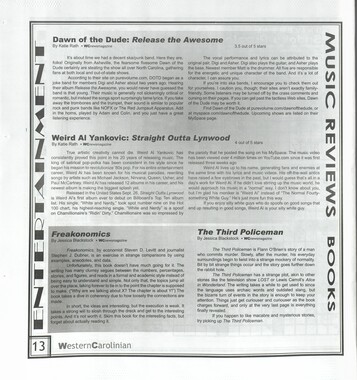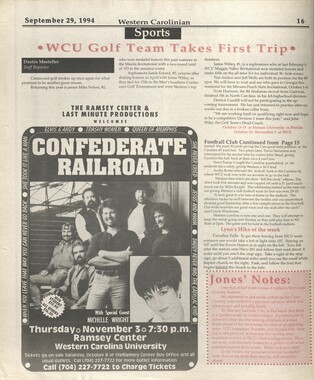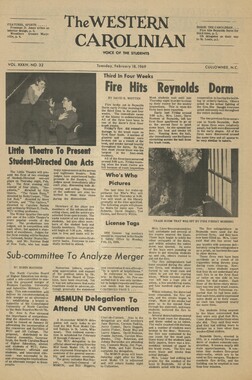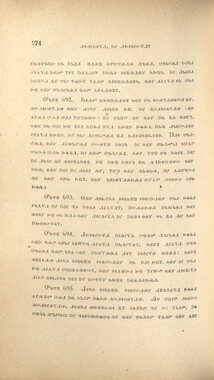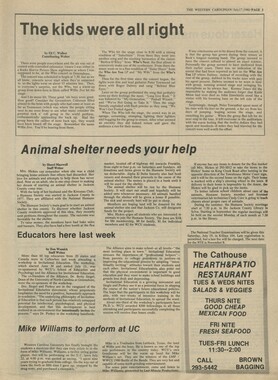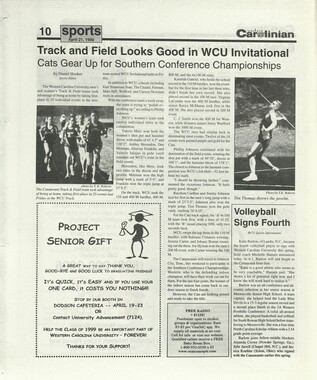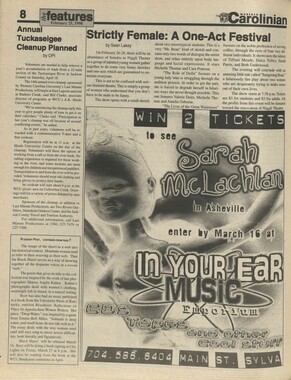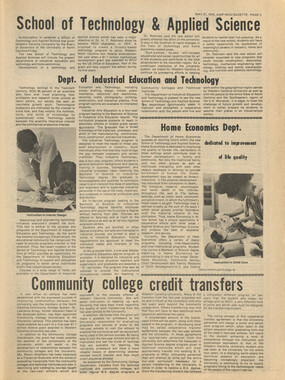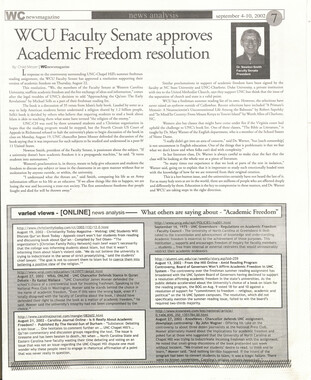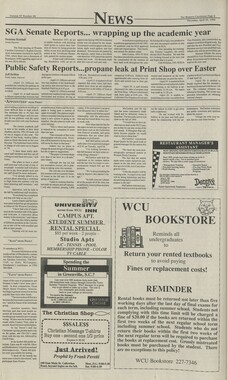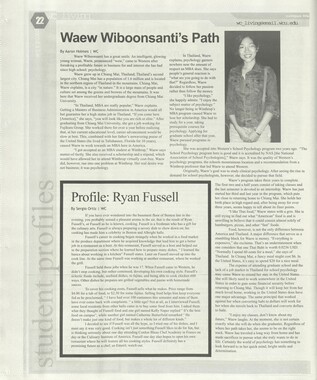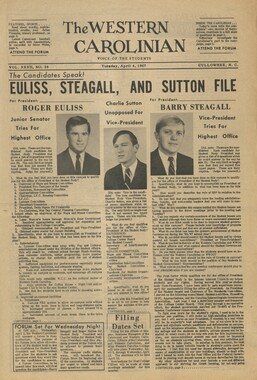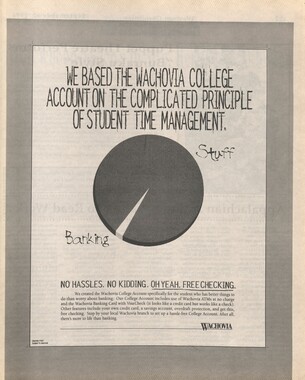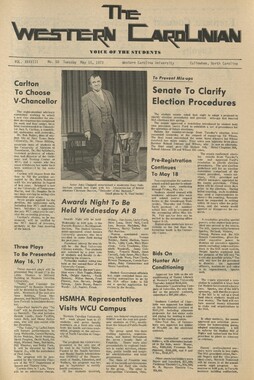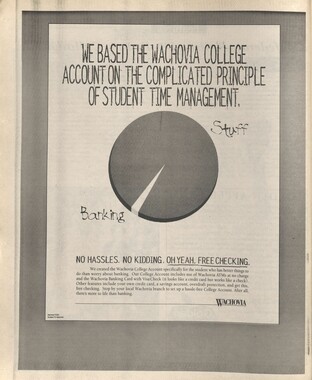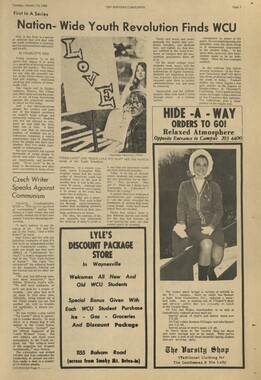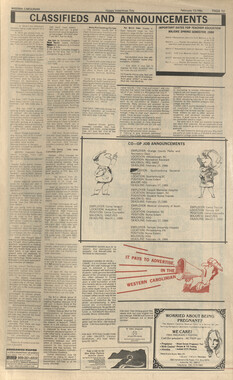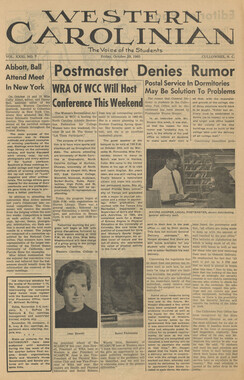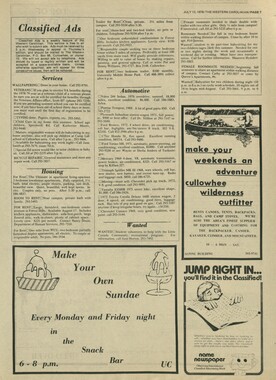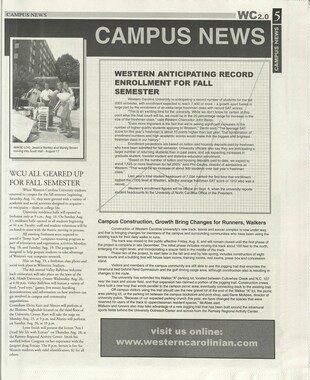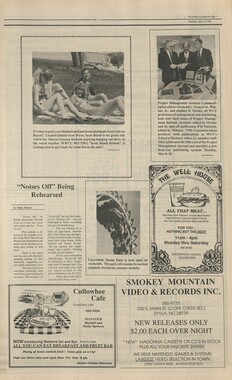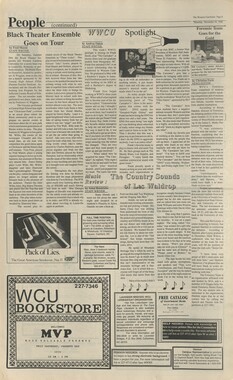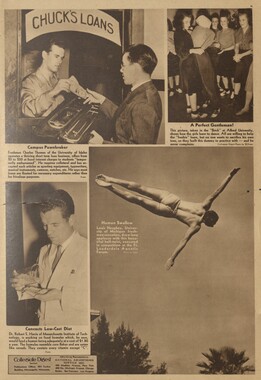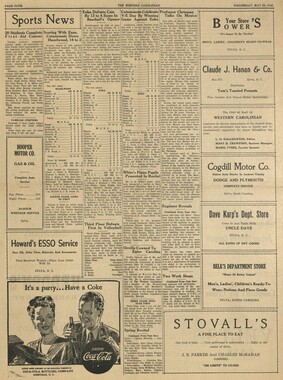Western Carolina University (20)
View all
- Canton Champion Fibre Company (2308)
- Cherokee Traditions (291)
- Civil War in Southern Appalachia (165)
- Craft Revival (1942)
- Great Smoky Mountains - A Park for America (2946)
- Highlights from Western Carolina University (430)
- Horace Kephart (941)
- Journeys Through Jackson (159)
- LGBTQIA+ Archive of Jackson County (85)
- Oral Histories of Western North Carolina (314)
- Picturing Appalachia (6798)
- Stories of Mountain Folk (413)
- Travel Western North Carolina (160)
- Western Carolina University Fine Art Museum Vitreograph Collection (129)
- Western Carolina University Herbarium (92)
- Western Carolina University: Making Memories (708)
- Western Carolina University Publications (2412)
- Western Carolina University Restricted Electronic Theses and Dissertations (146)
- Western North Carolina Regional Maps (71)
- World War II in Southern Appalachia (131)
University of North Carolina Asheville (6)
View all
- Allanstand Cottage Industries (62)
- Appalachian National Park Association (53)
- Bennett, Kelly, 1890-1974 (1388)
- Berry, Walter (76)
- Brasstown Carvers (40)
- Carver, George Washington, 1864?-1943 (26)
- Cathey, Joseph, 1803-1874 (1)
- Champion Fibre Company (233)
- Champion Paper and Fibre Company (297)
- Cherokee Indian Fair Association (16)
- Cherokee Language Program (22)
- Crowe, Amanda (40)
- Edmonston, Thomas Benton, 1842-1907 (7)
- Ensley, A. L. (Abraham Lincoln), 1865-1948 (275)
- Fromer, Irving Rhodes, 1913-1994 (70)
- George Butz (BFS 1907) (46)
- Goodrich, Frances Louisa (120)
- Grant, George Alexander, 1891-1964 (96)
- Heard, Marian Gladys (60)
- Kephart, Calvin, 1883-1969 (15)
- Kephart, Horace, 1862-1931 (313)
- Kephart, Laura, 1862-1954 (39)
- Laney, Gideon Thomas, 1889-1976 (439)
- Masa, George, 1881-1933 (61)
- McElhinney, William Julian, 1896-1953 (44)
- Niggli, Josephina, 1910-1983 (10)
- North Carolina Park Commission (105)
- Osborne, Kezia Stradley (9)
- Owens, Samuel Robert, 1918-1995 (11)
- Penland Weavers and Potters (36)
- Roberts, Vivienne (15)
- Roth, Albert, 1890-1974 (142)
- Schenck, Carl Alwin, 1868-1955 (1)
- Sherrill's Photography Studio (2565)
- Southern Highland Handicraft Guild (127)
- Southern Highlanders, Inc. (71)
- Stalcup, Jesse Bryson (46)
- Stearns, I. K. (213)
- Thompson, James Edward, 1880-1976 (226)
- United States. Indian Arts and Crafts Board (130)
- USFS (683)
- Vance, Zebulon Baird, 1830-1894 (1)
- Weaver, Zebulon, 1872-1948 (58)
- Western Carolina College (230)
- Western Carolina Teachers College (282)
- Western Carolina University (1899)
- Western Carolina University. Mountain Heritage Center (18)
- Whitman, Walt, 1819-1892 (10)
- Wilburn, Hiram Coleman, 1880-1967 (73)
- Williams, Isadora (3)
- Cain, Doreyl Ammons (0)
- Crittenden, Lorraine (0)
- Rhodes, Judy (0)
- Smith, Edward Clark (0)
- Appalachian Region, Southern (2569)
- Asheville (N.C.) (1923)
- Avery County (N.C.) (26)
- Blount County (Tenn.) (195)
- Buncombe County (N.C.) (1672)
- Cherokee County (N.C.) (283)
- Clay County (N.C.) (555)
- Graham County (N.C.) (233)
- Great Smoky Mountains National Park (N.C. and Tenn.) (519)
- Haywood County (N.C.) (3569)
- Henderson County (N.C.) (70)
- Jackson County (N.C.) (4804)
- Knox County (Tenn.) (35)
- Knoxville (Tenn.) (13)
- Lake Santeetlah (N.C.) (10)
- Macon County (N.C.) (420)
- Madison County (N.C.) (215)
- McDowell County (N.C.) (39)
- Mitchell County (N.C.) (132)
- Polk County (N.C.) (35)
- Qualla Boundary (981)
- Rutherford County (N.C.) (76)
- Swain County (N.C.) (2135)
- Transylvania County (N.C.) (270)
- Watauga County (N.C.) (12)
- Waynesville (N.C.) (86)
- Yancey County (N.C.) (72)
- Aerial Photographs (3)
- Aerial Views (60)
- Albums (books) (4)
- Articles (1)
- Artifacts (object Genre) (228)
- Bibliographies (1)
- Biography (general Genre) (2)
- Cards (information Artifacts) (38)
- Clippings (information Artifacts) (191)
- Copybooks (instructional Materials) (3)
- Crafts (art Genres) (622)
- Depictions (visual Works) (21)
- Design Drawings (1)
- Drawings (visual Works) (185)
- Envelopes (73)
- Exhibitions (events) (1)
- Facsimiles (reproductions) (1)
- Fiction (general Genre) (4)
- Financial Records (12)
- Fliers (printed Matter) (67)
- Glass Plate Negatives (381)
- Guidebooks (2)
- Internegatives (10)
- Interviews (815)
- Land Surveys (102)
- Letters (correspondence) (1013)
- Manuscripts (documents) (618)
- Maps (documents) (177)
- Memorandums (25)
- Minutes (administrative Records) (59)
- Negatives (photographs) (6015)
- Newsletters (1290)
- Newspapers (2)
- Notebooks (8)
- Occupation Currency (1)
- Paintings (visual Works) (1)
- Pen And Ink Drawings (1)
- Periodicals (193)
- Personal Narratives (10)
- Photographs (12976)
- Plans (maps) (1)
- Poetry (5)
- Portraits (4539)
- Postcards (329)
- Programs (documents) (151)
- Publications (documents) (2364)
- Questionnaires (65)
- Relief Prints (26)
- Sayings (literary Genre) (1)
- Scrapbooks (282)
- Sheet Music (2)
- Slides (photographs) (402)
- Songs (musical Compositions) (2)
- Sound Recordings (796)
- Specimens (92)
- Speeches (documents) (15)
- Tintypes (photographs) (8)
- Transcripts (322)
- Video Recordings (physical Artifacts) (23)
- Text Messages (0)
- A.L. Ensley Collection (275)
- Appalachian Industrial School Records (7)
- Appalachian National Park Association Records (336)
- Axley-Meroney Collection (2)
- Bayard Wootten Photograph Collection (20)
- Bethel Rural Community Organization Collection (7)
- Blumer Collection (5)
- C.W. Slagle Collection (20)
- Canton Area Historical Museum (2110)
- Carlos C. Campbell Collection (462)
- Cataloochee History Project (64)
- Cherokee Studies Collection (4)
- Daisy Dame Photograph Album (5)
- Daniel Boone VI Collection (1)
- Doris Ulmann Photograph Collection (112)
- Elizabeth H. Lasley Collection (1)
- Elizabeth Woolworth Szold Fleharty Collection (4)
- Frank Fry Collection (95)
- George Masa Collection (173)
- Gideon Laney Collection (452)
- Hazel Scarborough Collection (2)
- Hiram C. Wilburn Papers (28)
- Historic Photographs Collection (236)
- Horace Kephart Collection (861)
- Humbard Collection (33)
- Hunter and Weaver Families Collection (1)
- I. D. Blumenthal Collection (4)
- Isadora Williams Collection (4)
- Jesse Bryson Stalcup Collection (47)
- Jim Thompson Collection (224)
- John B. Battle Collection (7)
- John C. Campbell Folk School Records (80)
- John Parris Collection (6)
- Judaculla Rock project (2)
- Kelly Bennett Collection (1407)
- Love Family Papers (11)
- Major Wiley Parris Civil War Letters (3)
- Map Collection (12)
- McFee-Misemer Civil War Letters (34)
- Mountain Heritage Center Collection (4)
- Norburn - Robertson - Thomson Families Collection (44)
- Pauline Hood Collection (7)
- Pre-Guild Collection (2)
- Qualla Arts and Crafts Mutual Collection (12)
- R.A. Romanes Collection (681)
- Rosser H. Taylor Collection (1)
- Samuel Robert Owens Collection (94)
- Sara Madison Collection (144)
- Sherrill Studio Photo Collection (2558)
- Smoky Mountains Hiking Club Collection (616)
- Stories of Mountain Folk - Radio Programs (374)
- The Reporter, Western Carolina University (510)
- Venoy and Elizabeth Reed Collection (16)
- WCU Gender and Sexuality Oral History Project (32)
- WCU Mountain Heritage Center Oral Histories (25)
- WCU Oral History Collection - Mountain People, Mountain Lives (71)
- WCU Students Newspapers Collection (1843)
- Western North Carolina Tomorrow Black Oral History Project (69)
- William Williams Stringfield Collection (2)
- Zebulon Weaver Collection (109)
- African Americans (390)
- Appalachian Trail (35)
- Artisans (521)
- Cherokee art (84)
- Cherokee artists -- North Carolina (10)
- Cherokee language (21)
- Cherokee pottery (101)
- Cherokee women (208)
- Church buildings (172)
- Civilian Conservation Corps (U.S.) (111)
- College student newspapers and periodicals (1933)
- Dams (107)
- Dance (1023)
- Education (222)
- Floods (61)
- Folk music (1015)
- Forced removal, 1813-1903 (2)
- Forest conservation (220)
- Forests and forestry (1184)
- Gender nonconformity (4)
- Great Smoky Mountains National Park (N.C. and Tenn.) (181)
- Hunting (45)
- Landscape photography (25)
- Logging (119)
- Maps (83)
- Mines and mineral resources (8)
- North Carolina -- Maps (18)
- Paper industry (38)
- Postcards (255)
- Pottery (135)
- Railroad trains (72)
- Rural electrification -- North Carolina, Western (3)
- School integration -- Southern States (2)
- Segregation -- North Carolina, Western (5)
- Slavery (5)
- Sports (452)
- Storytelling (243)
- Waterfalls -- Great Smoky Mountains (N.C. and Tenn.) (66)
- Weaving -- Appalachian Region, Southern (280)
- Wood-carving -- Appalachian Region, Southern (328)
- World War, 1939-1945 (173)
Western Carolinian Volume 70 Number 06
Item
Item’s are ‘child’ level descriptions to ‘parent’ objects, (e.g. one page of a whole book).
-
-
LION Son 14 | WCnewsmagazine Political corruption in western NC By Maegan Cleckley * WCnewsmagazine When many people hear the words politics and corruption, they sometimes have a tendency to link the two together. Americans are not Strangers to the deception and dishonesty that can occasionally go hand in hand with politics. Everyone has studied the Watergate Scandal, remembers the Clinton ordeal, and is seeing firsthand the political divisions in response to the War on Terror; however, these are all national upheavals that are highly publicized for all Americans to make their own conclusions. But what happens when this corruption reaches Western North Carolina's backyard? With elections approaching in 2006, many believe NC Congressman Charles Taylor will undoubtedly maintain his seatin the House of Representatives, making it his ninth consecutive year to reign as this regions representative. Charles Taylor first took office in 1991 and has ever since represented the 11" District, which is comprised of Asheville and most of the Blue Ridge Mountains. During his time in office, he has won the hearts of the citizens he represents by implementing both educational and technological programs that have increased economic developments and decreased job cuts. A few years back, he even put together the Education Research Consortium, or ERC, whose results benefit q this region even today. This meeting of colleges and universities (including Western Carolina University) is continuing to achieve its goal of utilizing new technology to increase economic interests, as well as overall quality. Because of his infinite efforts to improve this area, it came as a tremendous blow to see him named one of the Thirteen most corrupt members of Congress. The Citizens for Responsibility and Ethics in Washington, or CREW, released statements of their intent to place Taylor under an ethical investigation. Their investigation is said to be based on his suspicious business practices, both in the United States and Russia. Taylor owns a bank in Russia; there are now misgivings about his practices. There are excessively high interest rates on the issued loans, as high as sixty percent, and his financial disclosures lack the necessary information about his banking interests. His bank in Asheville is also under scrutiny, as suspicious savings and loans are being exposed. Unfortunately for Taylor, he does not have his good reputation to fall back on. Years ago, allegations centered around money laundering and fraudulent loans were confirmed by Hayes Martin, president of Taylors Blue Ridge Savings Bank and campaign treasurer, who pled guilty to the charges. Despite his testimony, which proved Taylor's knowledge of the incidents, Taylor did not face charges. To make matters worse, Taylor's recent absence and failure to submit a vote at one of the most important congressional meetings of the decade has placed him out of his fellow citizen's favor. Taylor upset both Democrats and Republicans at this summer's vote on whether or not to pass the Central America Free Trade Agreement. His lack of participation allowed his fellow congressmen to hold him personally accountable for the result of the vote to pass CAFTA. The citizens he was supposed to be representing were outraged as well at his indifferent attitude towards his congressional responsibilities. His failure to vote was a slap in the face because Taylor, himself, stressed the importance of not allowing CAFTA to pass, emphasizing the negative effects it would have on their careers. His repeated claims that his vote had mistakenly not registered due to a technical difficulty did not change the fact that he had a period of an hour to notice and correct the lost vote. Despite all the developments Taylor has brought to the western Carolina region, citizens are becoming skeptical of his true values. As more speculation of scandal becomes exposed, questions as to whether he will maintain his political standing in next years election are quickly mounting. Watch out Geena Davis! These females are for real! | By Jennifer Scism * WCnewsmagazine Fifty years ago, hearing that a woman was involved in politics was a / chauvinistic form of a knee-slapper. Fortunately, America has taken a different path and has discarded the paradigm of the past concerning women in _ government positions. While there has never been a woman in the Oval Office (minus interns and Geena Davis) there are women currently holding all types of government positions. In fact, there are women at all levels of government: local, state, and federal. According to the Center for American Women and Politics, 81 women serve in the United States Congress this year. There are 535 seats in the U.S. Congress, making the percentage of women in congress 15.1%. There are 14 female senators and 67 females in the House of Representatives. There are also 80 females in statewide elected executive posts. 43 of the women in the House of Representatives are democrats and 24 are republicans. In the Senate, of the 14 women in office, nine are democrats and five are republicans. On the state level, 1,666 women serve in congress. This is 22.6% of the total number of all congressional positions in all the states combined. Women hold 403 of the state senatorial positions across the country. This is 20.4% of the total number of state senators across our nation. Also according to CAWP, there were 37 female mayors in cities with populations over 100,000. Three of these mayors were African Americans and six of them were Latinas. The numbers regarding women in political offices have steadily risen over the years. In 1979, only three percent of the U.S. Congress consisted of women. That figure has climbed to approximately 15% in 2005. Women holding statewide elected positions was at 11% in 1979. In 2005, this figure has risen to 25.7%. The number of women in state legislatures has more than doubled since 1979, when it was at 10%. The states with the highest percent of female State legislatures are: Maryland (34.6%), Delaware (33.9%), Arizona (33.3%), Nevada (33.3%), Vermont (33.3%), Washington (33.3%), Colorado (33%), Kansas (32.7%), New Mexico (31.3%), and California (30.8%). How does North Carolina Compare to other states? How many women does our state have in government positions? What positions do these females hold? Elizabeth Dole represents North Carolina in the U.S. Senate. She is the only female senator from NC. Two females, Sue Myrick and Virginia Foxx, represent NC in the U.S. House of Representatives. Beverly Perdue serves as Lieutenant Governor of North Carolina. Elaine Marshall serves as our Secretary of State. Cherie Berry is the Commissioner of Labor and our Chief State Education Official is Patricia Willoughby. As far as the state legislature goes, North Carolina has 39 representatives. Seven of these are senators and 32 are members of the NC House of Representatives. There are ten republican females in our State Congress and the other 22 are democrats. There are also two mayors in North Carolina who hold offices in cities of 30,000 citizens or more. Gastonia has a population of almost 69,000 and Jennifer Schultz is the mayor. Also, Jacksonville has a population of almost 67,000 people and Jan Slagle is the mayor. Women have definitely made their mark in American politics. North Carolina may not be the state with the largest number of women employed as government officials, but there are women in positions considered to be of significant stature. This is an important change for North Carolina and America as a whole. Not only has this opened doors for one specific minority (women) to be elected as government officials, it has opened the door for a wider variety of minorities to do so. As far as a woman president goes, why not? It's definitely possible and hopefully one day will be probable.
Object
Object’s are ‘parent’ level descriptions to ‘children’ items, (e.g. a book with pages).
-
The Western Carolinian is Western Carolina University's student-run newspaper. The paper was published as the Cullowhee Yodel from 1924 to 1931 before changing its name to The Western Carolinian in 1933.
-
